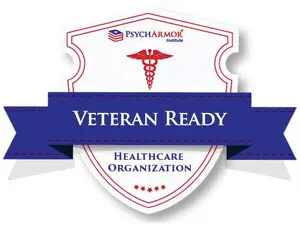Using Christian Faith for Your Recovery
 It’s truly courageous to enter an addiction treatment facility. Some people feel guided by their faith to seek treatment, which sustains them when they return home, while others rely on a renewed or newfound connection to spirituality to navigate recovery. How does it help?
It’s truly courageous to enter an addiction treatment facility. Some people feel guided by their faith to seek treatment, which sustains them when they return home, while others rely on a renewed or newfound connection to spirituality to navigate recovery. How does it help?
Faith-Based Recovery: A Foundation of Hope
Millions of people within many cultures follow some form of spiritual or religious compass that not only influences life choices, but also provides comfort, gratitude, and direction, and frequently determines their world view.
The World Population Review states about 85 percent of all individuals on earth identify with some type of faith-based doctrine. Christianity tops the list, followed by Islam, Hinduism, and Buddhism, then folk and other religions, such as Judaism, Native American and Aborginal observances, Sikhism, and Shintoism. Woven in-between are thousands of spiritual customs, derivations, and even non-religious but still purposeful practices, often unique to the individual who assigns importance to them.
And that’s probably the most important factor to remember of using faith in addiction recovery: it only works if you find value in it. Many people choose to remain unaffiliated with religion or spirituality, and they also heal from addiction. So there’s no “right” or “wrong”: only what’s best for you.
What many people discover about faith-based recovery programs is they have a more definitive form of support, structured in a way that gives meaning to their intentions and provides a ballast when life gets rough. If you’re someone who believes in faith, then whatever spiritual path you choose has the tenets that enable a foundation of hope and purpose. As an example, let’s talk about aspects of Christianity in recovery.
The Heart of Anonymous Support Groups
Even if you’ve never been at this crossroads before, you’ve likely heard the origin story of Alcoholics Anonymous. It was founded in 1935 by Bill W. and Dr. Bob, two men who believed they could use the power of faith and fellowship to help other people like them struggling with addiction.
According to AA’s mission, the 12-Steps “are a set of spiritual principles. When practiced as a way of life, they can expel the obsession to drink and enable the sufferer to recover from alcoholism.” As followers of the most widespread religion in the world, Bill W. and Dr. Bob drew upon their knowledge of Christianity to develop the 12 Steps and Traditions. For example, the second AA Tradition states: “For our group purpose there is but one ultimate authority—a loving God as He may express Himself in our group conscience. Our leaders are but trusted servants; they do not govern.” The third Step reads, “Made a decision to turn our will and our lives over to the care of God as we understood Him.”
By reinforcing to every member they were within a circle of light guided by a higher power, the program provided a source of strength—and established a more dedicated commitment to sobriety. Did it work without fail? No, but that was a faith-based lesson as well: when you fall, your God will be there to pick you back up and set you on the healing path.
AA and its companion support programs, such as Narcotics Anonymous and Gamblers Anonymous, helped to change society’s perspective toward addiction recovery. As a brain disease, alcohol use disorder (AUD) and substance use disorder (SUD) can’t be cured. But after medical treatment, programs like these are critical tools for managing AUD and SUD effectively.
Once rooted predominately in Christianity, AA and other anonymous 12-Step programs are now keen to encourage people of all faiths—as well those who remain unaffiliated—to use the Steps and Traditions as listed, focusing on the intention behind them even if certain words don’t apply to individuals. Another section of AA’s mission reads, “we are not anti-alcohol and we have no wish to reform the world. We are not allied with any group, cause or religious denomination. We welcome new members, but we do not recruit them.”
Other Christian-Based Recovery Programs
If you’re inclined to reinforce your sobriety choices with more defined Christian guidance, you might be interested in these programs:
Celebrate Recovery
According to their website, “Celebrate Recovery is a Christ-centered, 12 step recovery program for anyone struggling with hurt, pain or addiction of any kind. Celebrate Recovery is a safe place to find community and freedom from the issues that are controlling our life.” What first began in 1991 as a small meeting at Saddleback Church in Lake Forest, Celebrate Recovery is now helping millions of people worldwide through in-person meetings and other events.
Christians in Recovery
“Christians in Recovery is a group of men and women who are dedicated to personal one-on-one sharing of faith, strength and hope as we live each day in recovery. We work to regain and maintain balance and order in our lives through active discussion of the 12 Steps, the Bible, and experiences in our own recovery.” This organization, based in Massachusetts, is primarily online, with a host of resources and outreach.
The Christian Track at Seabrook
Seabrook’s residential Christian recovery program, led by spiritual advisor Rev. Paul Asciutto, Jr., includes a biblical guide through the 12-Steps, weekly devotional meetings, individual and pastoral counseling, and more. This program is open to all Seabrook clients, regardless of faith.
In recovery, you have the opportunity to choose whatever methods add to your emotional, physical, mental, and spiritual health. We encourage you to stay open to new possibilities for wellness.




